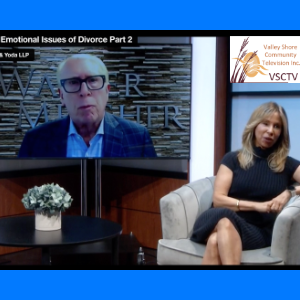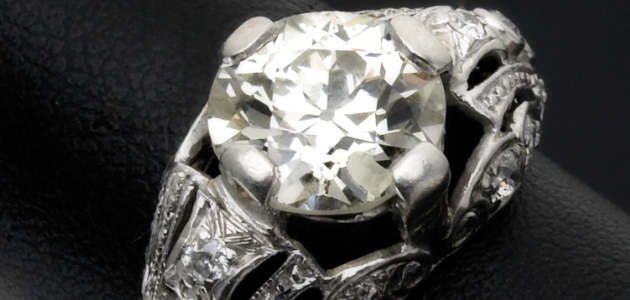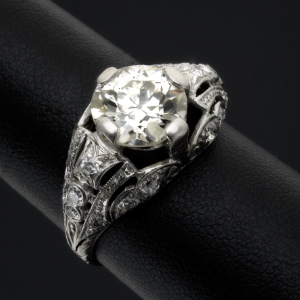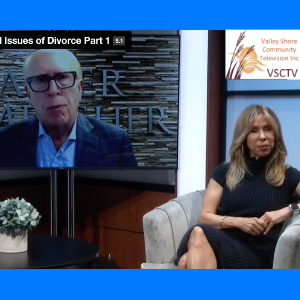
70k Engagement Ring Litigation Explained by Celebrity Lawyer

[Source: Bloomberg]
Celebrity Lawyer Peter M. Walzer, who is ranked as a best family law attorney in California, explains the 70k engagement ring litigation case.
(26:06) June Grosso:
And if you do decide to put a ring on it and the engagement is broken off, who gets the ring? Well, it depends. And that’s why a fight over a $70,000 Tiffany engagement ring has reached Massachusetts highest court. A would be groom broke off his engagement because he suspected his fiance was having an affair, something she denied. He took her to court to get the pricey ring back. That was seven years ago, and the litigation is still going on. And now it will be up to Massachusetts highest court to decide who gets the ring. Joining me is top family law attorney Peter M. Walzer, founding partner of Walzer Melcher & Yoda LLP, which is ranked as a best family law firm in California. Are lawsuits over who gets the ring the last remaining types of litigation over broken engagements?
Who Gets Ring in Broken Engagements?
Peter Walzer:
Yes, that’s true. All the heart-bomb statutes, which were laws in the forties and fifties where you could sue for a broken engagement have been abolished in all the states. This is the vestige of that. This is one of the last forms of litigation relating to broken engagements. The older laws in this country did allow people to sue over a broken engagement, but those are antiquated and of course have been inclined to get rid of all in-relationship litigation including divorce, broken engagement, that kind of thing.
Different States’ Engagement Case Laws
June Grosso:
And in Massachusetts, in a case over who gets the engagement ring, it depends on who’s at fault for breaking off the engagement? That’s the issue.
Peter Walzer:
Yeah. And other states (like Texas) have that law. In Massachusetts, it’s case law, not statutory law. And if you could prove it was the other person’s fault for breaking off the relationship, you could keep the ring. If it was your fault, then they keep the ring. That involved a lot of litigation. And in this case it went from the trial court to the appellate court to the Supreme Court, which is a lot of money even for a $70,000 engagement ring from Tiffany.
At Fault Definition for Engagements
June Grosso:
Let me ask you this, by at fault, if you just break off an engagement, are you at fault or is it more than that?
Peter Walzer:
I think it’s more than that. In this case, the guy, the giver of the engagement ring accused her of having an affair. He saw some posts on social media that she was with a guy. Her claim was it was just an old friend and she wasn’t at fault. This causes a court to have to decide who was at fault. Was she really cheating on the guy or was it an old friend and they made a mistake?
June Grosso:
In this case, the trial court concluded, as you mentioned before, that he was mistaken and he had to bear the fault. She got to keep the ring as well as more than $40,000 for planned dental work he’d promised her. Is that over and above or is that included too in these kinds of lawsuits like you promised to do this once we got married?
Contractual Issues in Relationships
Peter Walzer:
Well, that’s probably a different issue. That’s a contractual issue. The court found that there was an oral contract for him to do this and enforced that. It probably had nothing to do with the engagement. The engagement ring was a separate issue and dealt with separately. But if you promise somebody and the court finds there’s a contract and there’s consideration, I don’t know what the consideration in this case was, but that is, I would say, unusual and maybe is why this case went up to the Supreme Court because it was so ridiculous.
June Grosso:
The trial court’s decision was reversed by an appeals court, and now the case is before Massachusetts highest court. What were the arguments there?
California’s Engagement Ring Law
Peter Walzer:
Special category. If you promise to marry me, if you break it off for no good reason, why shouldn’t I get the ring back? And in fact, in many states like California, if the engagement is broken off for whatever reason, you get the ring back. Other states treat it differently that no matter what the reason, the person who receives the ring keeps it. But California for example, not only do you get your ring back, but if the person says, I can’t find the ring, which you can imagine how common that is, you have to pay the value of the ring. If you say, I can’t find it, well, too bad, I want the money for the ring.
June Grosso:
Wow. Why isn’t the ring considered a gift?
Peter Walzer:
Well, it would be considered a gift, for example, if it was a birthday gift or a holiday gift, Christmas or Hanukkah, whatever, but in this case, there’s a promise and you broke your promise. I want my ring back.
June Grosso:
The highest court in Massachusetts could just decide this based on the law as it is. Or could they establish a new law in Massachusetts more in line with other states?
Peter Walzer:
From my reading of it, they’re likely to set a precedent one way or the other that it’s a conditional gift. If the engagement is broken off for whatever reason, the ring is returned or they could treat it as an unconditional gift, the person keeps the ring no matter what happens. And I guess it depends on who you are, who’s the giver and who’s the receiver. But if there was a good reason for breaking off the relationship, for example, the person was married to somebody else, you can imagine situations that you would want your ring back. Or there was some fraud, you’d want the ring back. But the court doesn’t want a lot of mitigation over this because it’s expensive and it’s basically he said, she said, or he said, he said, or she said, she said. It’s not necessarily opposite sex, but it’s a special legal relationship getting married and it’s different than a holiday gift. And people will spend a lot more money on an engagement ring than they would on a holiday gift. That’s why it’s treated differently under the law.
Litigation over Jewelry in Divorce
June Grosso:
Is there ever litigation over a ring in a divorce?
Peter Walzer:
Yeah, I’ve had that one. That is really tough because if it’s an expensive ring, more than the parties would ordinarily spend on a gift to one another under at least California law, unless it’s in writing, you can get your ring back or your jewelry back. And I had that in one case where the guy had cheated on my client and he gave her a ring to make up for it, which was worth about $75,000 at the time, probably 20 years ago. The court ordered that she return it to him because it was not in writing and it was an extraordinary amount of money. My client was not happy, I was not happy, but that was the result.
June Grosso:
In a prenup, now you should write an I get to keep the ring, or he gets to keep the ring.
Peter Walzer:
Yeah, we definitely put that in the separate property schedules and list the ring because we don’t want a situation and you have to say, even if we don’t get married, even though the agreement is not valid unless you get married, except for the ring, I get to keep my ring.
June Grosso:
And in this case, they’re fighting over a seventy-thousand dollar ring for seven years, and I wonder how much the legal fees are going to take up.
Peter Walzer:
Hundreds of thousands of dollars. I mean, that is crazy. And maybe it’s a publicity stunt, maybe it’s about something else. Usually it’s about somebody’s feelings, but it is crazy. But seventy thousand dollars is a lot of money. But once you’re in, you give up. The fact that this made it to the Supreme Court, maybe the lawyers are funding it so their names in the paper, who knows?
June Grosso:
You think there should be a bright line rule in all the states?
Peter Walzer:
Yeah, it’s more of a symbol, I would say. It’s an emotional symbol for people. It’s not like your ordinary gift of something. And there’s a lot of feeling into it that the courts really need to take charge like the legislatures do and make up bright line rules. Either it’s a gift outright and no conditions no matter what, or it’s a conditional gift. If it’s broken off, you get the ring back. It’s probably more practical to say, if you are inclined to give an expensive gift on the condition of getting married, you’ve given it no conditions made. It doesn’t matter if the relationship goes through, it’s on you to ensure you pick the right person and you don’t do this on a whim. If I was writing the law, I would go for, it’s a gift no matter what. And if you give it whether the wedding is broken off. On the other hand though, you could think of people deceiving people saying, let’s get married, I love you. They get the ring and then they break off the wedding. These things are not as easy as it seems, right?
June Grosso:
Not at all. Although I think Montana has made it easier because the Supreme Court there more than 20 years ago decided a no take back policy that treats the ring no different than any other gift. That seems pretty easy.
No Fault Divorce Statutes
Peter Walzer:
It’s interesting because in the sixties, my dad was on the Governor’s commission for no-fault divorce in California, and in 1970 we enacted the no-fault statute in divorces. And that’s carried to pretty much most states, not all states, but most states. But now it’s backtracking where many states are bringing domestic violence into it and coercive control, and it’s getting back to a fault situation in many states like California and what was ordinarily simple divorce even. None of them are really simple. It’s led to a lot of allegations of domestic violence or coercive control or abuse, verbal abuse, that kind of thing. It’s funny how things cycle around.
June Grosso:
Yes, I’ve seen a lot of repeating cycles in our society lately. Thanks so much, Peter. That’s celebrity divorce lawyer Peter Walzer of Walzer Melcher & Yoda. And that’s it for this edition of the Bloomberg Law Podcast.
©2024 Bloomberg Law Podcast. No claims made to copyrighted material. Aired 9/10/24.
5 More posts on Divorce with Top Family Law Attorney Peter M. Walzer
More from Peter M. Walzer on Engagement Ring Litigation

70k Engagement Ring Litigation Explained by Celebrity Lawyer




